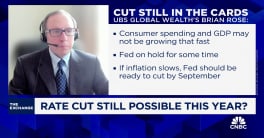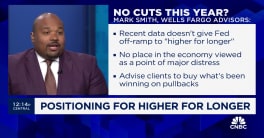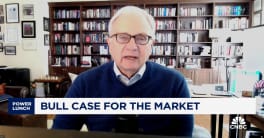Hedge funds have been a big buzzword over the last decade as investors seek to "hedge their bets" in financial markets.
Now there are ways to hedge your bet in the housing market. Well, maybe not
you personally - this is a pretty expensive proposition for an individual
homeowner - but ways that mortgage companies, home builders, and others
heavily invested in the future of the housing market can protect themselves
against market fluctuations and investors can take advantage of rising prices
without actually buying and selling homes. And maybe there will soon be opportunities
for individual homeowners and small investors.
The Chicago Mercantile Exchange recently followed the lead of a small San Mateo
California derivatives exchange in offering housing based futures contracts
to investors. These contracts are not quite like commodities and not quite like
options contracts but have some of the features of both. In order to understand
these products which are a bit amorphous, it is probably easiest to look at
commodities and options.
Commodities contracts, long considered no game for amateurs, allow investors to speculate on the future price of real products - metals, agricultural goods, energy, currency and so forth at a given point in time. For example, an investor may have a hunch that oil will go to 85 dollars a barrel by December, 2006. He does not have the capacity to buy and store a thousand barrels of oil but he can invest in oil futures - paper that gives him ultimate ownership of those 1,000 barrels when they are produced in six months. As the price of oil inches upwards the value of his paper increases and perhaps in November, with oil prices approaching $90 a barrel, he will sell the futures contracts for much more than he paid. If the price of oil heads south, so will the value of the contract. The real danger with commodity contracts, however, is that the product, whether oil, sowbellies, or copper will be delivered to the person holding the contract when it expires. In other words, even if you lose thousands of dollars you still must bite the bullet at whatever loss before you have, as happened to an acquaintance, a freight car load of eggs rotting on a rail siding.
Commodities contracts can also be sold "short." If an investor feels that the price of oil is due to plummet he can sell a futures contract he does not own at a price that reflects current values. If oil prices drop, the value of his contract will too and will be able to "cover the short" by purchasing a real contract at a lower price than for what he sold his non-existent one. If prices continue to escalate, however, he must still cover the short by buying a contract, probably at a much higher price, before the expiration date. Since he sold the contract before he bought it, at least he doesn't have the rotting egg problem but he does owe the party who bought the non-existent contract either his money or a freight car full of eggs.
Investors buy commodity futures but the real market is with producers who are hedging their bets - a cattle rancher for example, who wants to lock in future beef prices even through his cattle won't be market weight for months.
While futures contracts are expensive, there are mutual funds that invest in commodities, allowing even small investors to take on what is substantial risk.
Options are generally tied to publicly traded stock. They expire on a date certain like commodities contracts, but unless the investor chooses to exercise the option, he never actually receives the stock.
For example, Microsoft, (NASDAQ symbol MSFT) is priced at around $22 per share after the recent market sell-off. If you wish to bet that Microsoft will go up but don't have $2,200 to buy 100 shares you can purchase a "call;" that is an option that gives you the right to purchase the stock by a certain date at a "strike price," perhaps $27 even if the price reaches $50 per share or resell the call as the price rises. Right now you could bet that MSFT will hit 27 by January, 2007 for .35 a share ($35 per contract) or that it will be at 27.50 in October 2006 for .15 a share. But, if you expect MSFT to drop still further you could buy a "put" which is the equivalent of selling a stock short - betting that the price is going to drop. Options are a low-cost way of playing the market but are valueless after the expiration date.
The new housing futures have features of both the commodities and the options market. The futures offered by the Chicago Mercantile Exchange are based on the Case-Shiller Home Price Index for each of ten cities; Chicago, Boston, Las Vegas, Denver, Los Angeles, New York, Miami, San Diego, San Francisco and Washington. Investors can also buy contracts based on a weighted composite index for all ten cities. The average contract is around $55,000 and there are four expiration dates each year, currently this August, November, and February and May of 2007. Investors can purchase calls thus betting that the market is going up or puts, banking that prices are going to decrease.
The Cash-Shiller index is based on repeat sales (much like the way OFHEO tracks home prices.) If a house sells at $100,000 and then sells again at $110,000 the index records a ten percent increase.
Unlike either options or futures the investor is not offering to buy anything and will not end up owning a single house, voluntarily or not. This is the amorphous part - he is betting on a trend and one in which forecasting has been problematic. In this respect housing futures are more like betting on a horse race; investors will end up cashing in their tickets or ripping them into confetti.
But as a hedge these products may have significant appeal. A large homebuilder in the middle of developing a 500 unit subdivision in the Chicago suburbs and worried about market stability might purchase puts for housing in his area. If prices go up during the contract period the value of his contracts would decline but he doesn't care because the value of the bricks and mortar that are his main concern will remain stable or rise and the cost of the contract can be viewed almost like an insurance premium. On the other hand, if prices adjust sharply downward the value of the contracts will increase and partially offset the loss the builder may suffer from slower sales or lower prices.
If these options prove popular, expect that contracts will be available for longer terms and that mutual funds will be created to invest in them. This will allow small investors to get into the market and permit individual homeowners to hedge their bets on their largest single investment just like the big guys.







